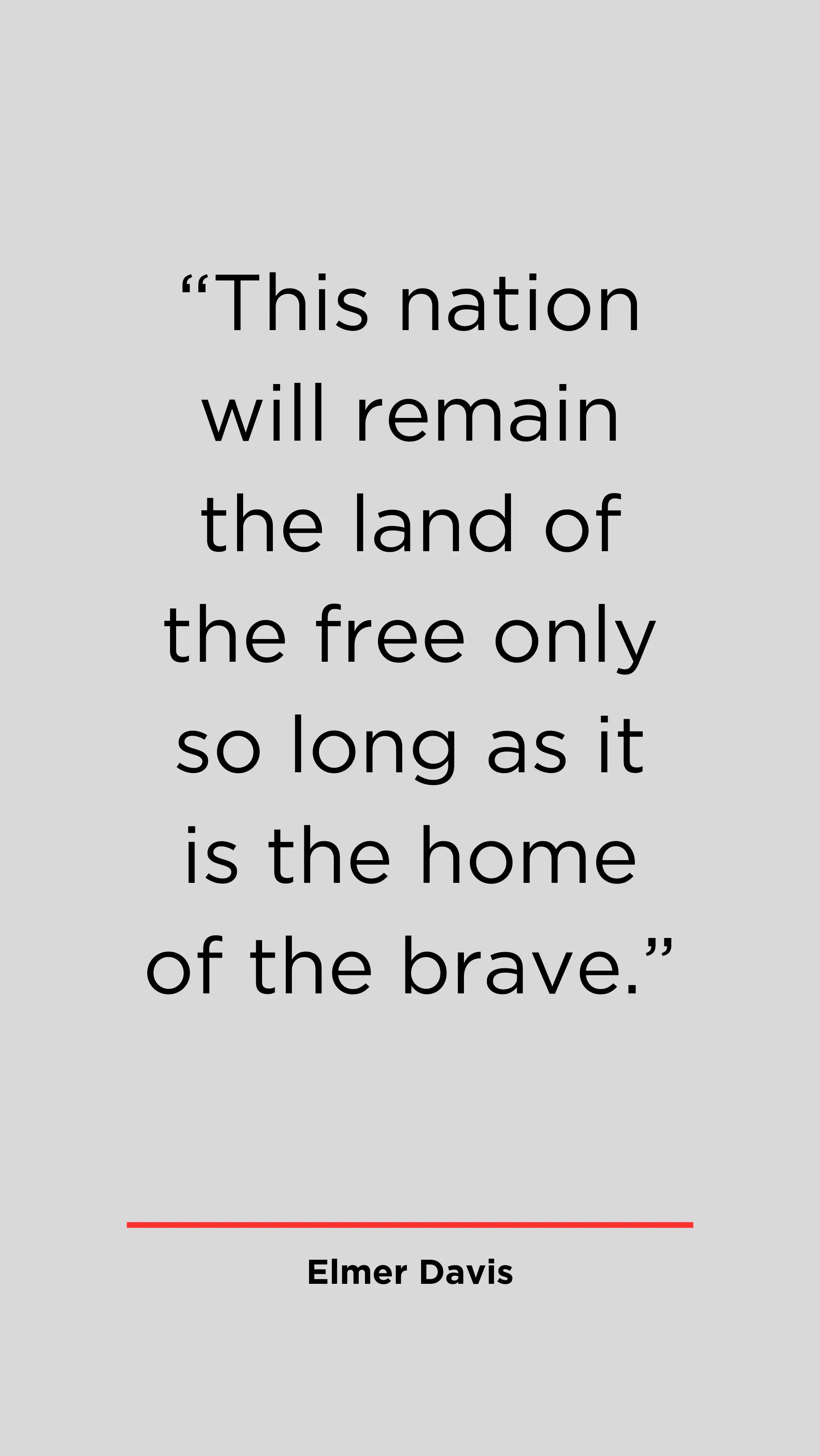Elmer Davis, born on January 13, 1890, in Aurora, Indiana, was a pivotal figure in shaping wartime information and propaganda during World War II. As the director of the Office of War Information (OWI), Davis played a crucial role in coordinating and disseminating information to the American public and beyond.
Early Life and Journalism Career
Elmer Davis took his professional journey in the field of journalism, laying the foundation for a career marked by his skills as a writer and commentator. His early years in journalism encompassed diverse roles, including reporter, editor, and columnist, showcasing his versatility and aptitude for navigating the intricacies of the written word. Davis’s work in journalism during these formative years highlighted not only his capacity to articulate complex issues but also his commitment to objective and insightful reporting.
As a journalist, Elmer Davis became known for his ability to provide thoughtful analysis and commentary on a wide range of subjects. His early career in journalism served as a launching pad for the multifaceted roles he would later assume, shaping his identity as a communicator and paving the way for his impactful contributions in the realms of media and public information.
Elmer Davis: Director of the Office of War Information
In 1942, Elmer Davis received a significant appointment by President Franklin D. Roosevelt to head the newly established Office of War Information (OWI). As the director of this crucial wartime agency, Davis undertook the formidable task of managing information and propaganda efforts to effectively communicate a unified message to the American population. Given the diverse and geographically dispersed nature of the country, Davis faced the immense challenge of fostering a sense of national unity and purpose during a time of global conflict.
In his role at the OWI, Davis navigated the complexities of wartime communication, striving to present accurate and inspiring information to the public. He recognized the power of media and its impact on shaping public perceptions, aiming to bolster morale and convey the importance of collective efforts on the home front. Elmer Davis’s leadership at the Office of War Information underscored the vital role of effective communication in a nation mobilized for war, and his efforts contributed to the shaping of a cohesive narrative that resonated across the diverse landscape of wartime America.
Communication and Propaganda Strategy
Elmer Davis, as the head of the Office of War Information (OWI), recognized the crucial role that communication and propaganda played in shaping public perception during wartime. Understanding the power of media to influence public opinion, Davis strategically led the OWI in coordinating a cohesive messaging strategy. Through various forms of media, including radio broadcasts, newspapers, and posters, the OWI, under Davis’s guidance, worked to convey a unified and compelling narrative that aimed to foster national unity, boost morale, and garner support for the war effort.
Davis’s approach to communication and propaganda strategy was rooted in a commitment to transparency and accuracy. While recognizing the need for persuasion, he emphasized the importance of providing the public with truthful and reliable information. By orchestrating a well-coordinated and strategic messaging effort, Davis and the OWI played a central role in managing public perceptions, contributing to the nation’s understanding of the war and its collective resolve during a critical period in history.
Elmer Davis: Balancing Truth and Propaganda
Davis distinguished himself during his tenure as the head of the Office of War Information (OWI) by navigating the delicate balance between the necessity of wartime propaganda and the commitment to truthfulness. Understanding the critical role of credibility in effective communication, Elmer prioritized accuracy in the information disseminated to the public. In an era where propaganda was often employed to shape perceptions and boost morale, Davis stood out for his emphasis on maintaining the trust of the American people by delivering truthful accounts of the war.
Moreover, he recognized the potential long-term consequences of spreading misinformation, even in the context of wartime propaganda. By prioritizing honesty and credibility, he sought to ensure that the public remained informed and engaged, fostering a sense of trust in the government’s communication efforts. Elmer Davis’s commitment to balancing the imperative for persuasive messaging with a dedication to truthfulness underscored his integrity as a leader and his belief in the enduring value of providing accurate information, even during times of war.
Radio Broadcasts and Public Engagement
Elmer Davis recognized the unparalleled reach and influence of radio as a medium for connecting with the American public, and he strategically leveraged it as a primary tool during his tenure at the Office of War Information (OWI). Davis became a familiar voice to millions of Americans through his regular radio broadcasts, most notably through the widely acclaimed “We, the People” series. These broadcasts served as a powerful means of public engagement, offering a platform for Davis to communicate directly with audiences across the nation. Through his eloquent and authoritative delivery, Davis conveyed a sense of unity, shared purpose, and national resilience, fostering a connection between the government and the citizens during the challenging wartime period.
“We, the People” became a significant cultural touchstone, contributing to the sense of a collective national identity during World War II. The radio broadcasts not only disseminated important information but also provided a platform for Americans to feel connected to the broader war effort. Davis’s skillful use of radio exemplified his understanding of the medium’s potential to shape public sentiment and maintain a sense of cohesion in a nation facing the trials of war.
Elmer Davis: Overseeing War Information Campaigns
Davis directed informational campaigns on a range of topics, including rationing, war bonds, and the significance of various home front activities. By providing clear and accessible information, Davis sought to engage the public in the broader war effort and foster a sense of understanding about the sacrifices required for victory. These campaigns became essential tools for shaping public perception, promoting a sense of national unity, and reinforcing the idea that every individual had a role to play in supporting the war.

Post-War Contributions and Legacy
After World War II, Elmer Davis continued to make significant contributions to journalism and public discourse. His post-war career reflected a commitment to journalistic integrity and the responsible use of media in times of crisis. Davis returned to his roots as a news commentator, writing columns and providing analysis on important national and international issues. “His insights were valued not only for their depth but also for the ethical principles he upheld in journalistic practice. Additionally, his commitment to unbiased reporting set him apart in the field. Moreover, his writing exhibited not just analytical prowess but also a keen sense of social responsibility.
Elmer Davis’s legacy extends beyond his wartime role, encompassing a broader impact on the field of journalism. His dedication to accurate reporting, transparency, and the responsible use of media serves as a reminder of the influential role journalism plays in shaping public understanding. Davis’s post-war contributions and enduring legacy highlight the importance of principled journalism in fostering an informed and engaged citizenry, principles that remain relevant in contemporary discussions about the role of media in society.








